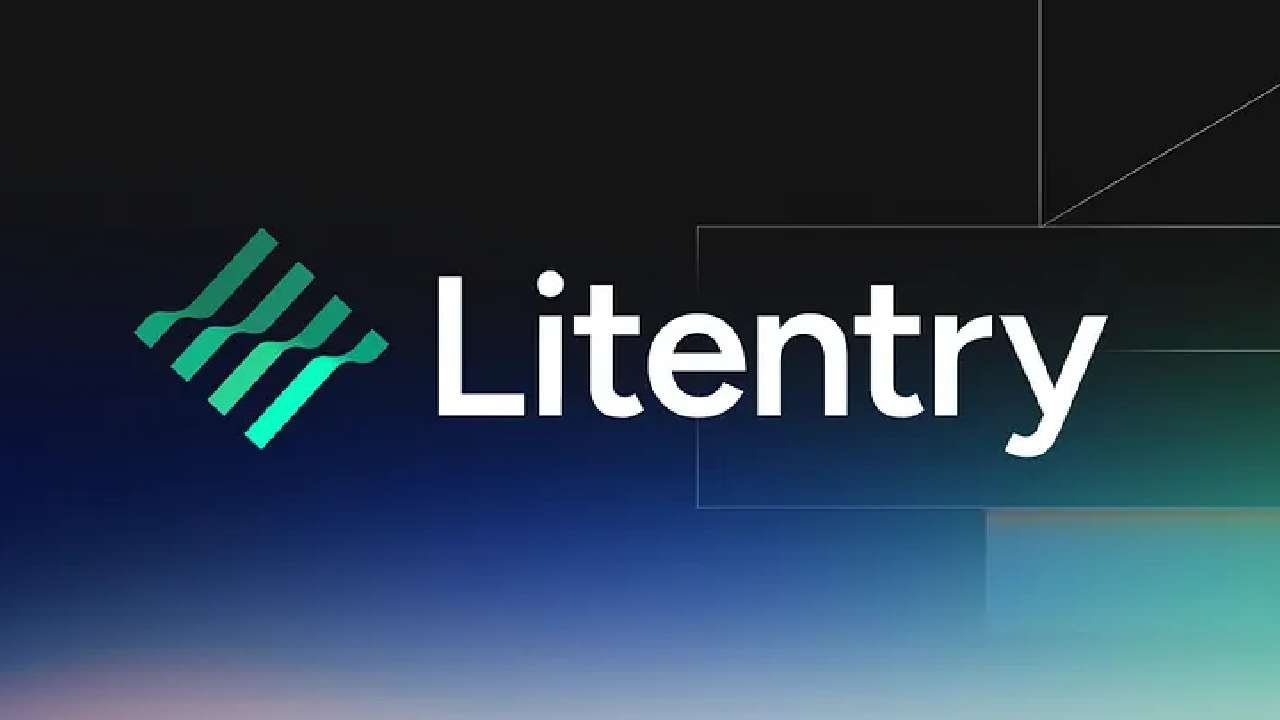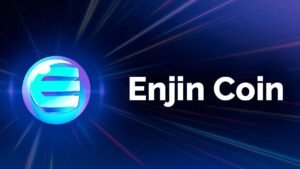admin@cryptopulse360.com
In the digital age, our identities are increasingly becoming a collection of data points. From social media profiles to banking information, our personal data is scattered across various platforms, often managed by centralized entities. This centralization poses significant risks, including data breaches, identity theft, and lack of privacy.
However, a new paradigm is emerging to address these challenges: decentralized identity. Among the key players in this field is Litentry, a project that is gaining attention for its innovative approach to identity management. This blog post explores the rise of decentralized identity and why Litentry is a critical player in this evolving landscape.
Table of Contents
What is Decentralized Identity (DID) ?
Decentralized identity refers to a concept where individuals have control over their own digital identities without relying on a central authority or intermediary. In traditional identity systems, such as those used by governments or social media platforms, personal information is stored and managed by centralized entities. However, decentralized identity flips this model on its head by giving users ownership and control over their identity data.
Here’s how decentralized identity typically works:
- User Ownership: In a decentralized identity system, users own their identity data. This means they have control over what information is shared, who it is shared with, and for how long it is shared.
- Decentralized Storage: Instead of storing identity data in a single centralized database, decentralized identity systems use distributed ledger technology, such as blockchain, to store and manage identity information. This ensures that data is not stored in a single location, reducing the risk of data breaches and unauthorized access.
- Interoperability: Decentralized identity systems aim to be interoperable, meaning that users can use the same identity across different services and platforms without having to create separate accounts or profiles for each one.
- Privacy and Security: Decentralized identity solutions prioritize user privacy and security. By giving users control over their identity data and utilizing cryptographic techniques, these systems protect against unauthorized access and ensure that personal information is only shared when necessary and with the user’s consent.
- Portability: One of the key benefits of decentralized identity is its portability. Users can carry their digital identities with them wherever they go, enabling seamless access to services and platforms across different devices and environments.
Overall, decentralized identity represents a paradigm shift in how we think about identity management in the digital age. It puts users in control of their own data, enhances privacy and security, and promotes interoperability and portability across the digital landscape.
What is Litentry ?
Litentry is a decentralized identity aggregation platform built on the blockchain. It focuses on linking user identities across different networks while ensuring privacy. It’s framework allows for the aggregation of identities from different networks, thereby providing a way for users to manage and use their identities across various blockchain applications without compromising privacy or security.
Let’s break it down into simpler terms. Imagine you have different IDs for various things in your life: one for your social media, another for your bank account, and maybe another for your membership at a local gym. Managing all these different IDs can be a hassle, especially when you need to prove who you are or access your accounts quickly.
Litentry is like a digital wallet for all these IDs but in the online world of blockchains (which are like super-secure online ledgers that keep track of transactions and data). It allows you to combine all these different online identities you have into one place. This way, you can easily prove who you are or access your stuff across different online services without having to repeatedly provide tons of personal info each time.
What makes Litentry special is its focus on keeping your info safe and private. It uses advanced technology to make sure that when you need to prove something about yourself (like your age or that you really are the owner of an account), you can do so without actually giving away any more information than absolutely necessary.
And because Litentry is designed to work with Polkadot (a network that connects different blockchains so they can work together), your combined identity can be used smoothly across many different services, even if they’re on different blockchains.
In short, Litentry acts like a super-smart digital ID wallet that helps keep your info safe and makes it easier for you to navigate and use the online world of blockchains.
What are key features of Litentry ?
The key features of Litentry are :
- Cross-Chain Identity Aggregation: It can gather and link your identities across various blockchain networks (e.g., Polkadot, Ethereum, Kusama). This allows you to manage your decentralized presence seamlessly without dealing with multiple, fragmented identities.
- Decentralized Identity (DID): The platform enables users to create self-sovereign DIDs—digital identifiers that are owned and controlled entirely by the user, not a centralized entity. This gives you superior ownership over your online identity.
- Privacy-Focused Design: It prioritizes user privacy. It protects personal information with secure storage and selective data sharing. You get to control which data is visible to specific applications or services.
- Mobile App: It offers a mobile app that makes decentralized identity management easy and accessible from your smartphone.
- Identity Computation: Litentry’s network can calculate an on-chain credit score based on your decentralized activities. This score can be used in DeFi applications for reputation building and risk assessment.
- Identity Staking: Users can stake their LIT tokens and contribute to the network’s security while potentially earning rewards.
- Identity Matching: This feature facilitates a marketplace where dApps can find users that fit specific identity criteria (e.g., a certain credit score) while preserving user privacy.
- Browser Extension: Litentry provides a browser extension for smooth integration with web applications.
- Governance: LIT token holders can actively participate in shaping Litentry’s future through governance mechanisms.
What are use cases for Litentry ?
Litentry can be applied in various areas due to its ability to securely and efficiently manage identities across different blockchain networks. Here are some of the primary use cases for Litentry:
- Decentralized Finance (DeFi): In the DeFi space, where transactions and interactions are made without traditional financial intermediaries, It can provide secure and privacy-preserving identity verification. This could be used for Know Your Customer (KYC) processes, enabling users to participate in financial services without compromising their personal information.
- Governance: In blockchain governance, where decisions are made through community voting, It can ensure that votes are cast by real, unique individuals without revealing their identities. This enhances the fairness and integrity of decentralized decision-making processes.
- Credit Scoring: Traditional credit scoring relies on centralized agencies and does not translate well into the DeFi world. It can aggregate a user’s financial history across multiple blockchains to generate a decentralized credit score, enabling access to financial services without exposing the user’s entire financial history.
- Anti-fraud and Compliance: By providing a way to verify identities while preserving privacy, It can help reduce fraud in online transactions and services. It can ensure compliance with regulatory requirements in a manner that respects user privacy.
- Cross-Chain Interactions: As users engage with multiple blockchain platforms, managing separate identities becomes cumbersome. It facilitates seamless interaction across these platforms by providing a unified identity, improving user experience and accessibility.
- Personal Data Management: Users can control and manage their personal data across different platforms efficiently. It allows individuals to decide which pieces of their identity and data they wish to share and with whom, empowering users with control over their online presence.
- Access Control: In scenarios requiring secure access to resources or services, it can provide a reliable means of verifying user credentials without the need for traditional password-based systems, enhancing security and convenience.
- Targeted Airdrops: Projects could run fairer airdrops based on authentic community involvement instead of just using publicly visible wallet addresses that can be manipulated.
- Gaming: Identity aggregation can tie a user’s cross-platform achievements to their DID with verifiable proofs, enhancing user profiles and potentially unlocking rewards.
- Metaverse: Building a unified, privacy-aware identity becomes increasingly important as the metaverse grows. It’s cross-chain functionality aligns well with this concept.
Real-World Examples
- Equilibrium: Litentry has partnered with Equilibrium, a DeFi platform on Polkadot, to integrate LIT as collateral and provide credit-based lending.
- Polkassembly: Litentry powers the reputation system on Polkassembly, a governance platform for the Polkadot ecosystem.
These use cases highlight the potential of Litentry to revolutionize identity management and verification across a wide range of industries and applications, making online interactions more secure, private, and efficient.
What is IdentityHub built by Litentry ?
IdentityHub, built by Litentry, is a platform focused on helping users and projects manage their Web3 identities in a way that prioritizes privacy. It achieves this with the following features:
- Decentralized Identity (DID): Users can create a single, self-owned DID that links their Web2 (e.g., Twitter, Discord) identities and various blockchain wallets.
- Cross-Chain Aggregation: IdentityHub pulls data from multiple blockchains, making it easier to get a unified view of a user’s activity.
- Privacy-Centric Design: Users control which parts of their identity are visible. IdentityHub leverages technologies like encryption to protect sensitive information.
- Identity Staking: Users can stake LIT tokens (Litentry’s native token) to earn rewards.
Benefits for Projects
- Data Insights: Projects can access aggregated on-chain user data through IdentityHub. This allows them to identify potential customers, make data-driven decisions, and improve their products or services.
- Improved Conversion Rates: Projects can use the insights they get from IdentityHub’s data to design more personalized user experiences and marketing campaigns, thus increasing their conversion rates.
Benefits for Users
- Unified Web2 & Web3 Identity: Users can consolidate their various identities into a single DID, making it easier to interact with dApps and manage their online presence.
- Privacy Protection: IdentityHub lets users control exactly what data dApps and services can see while giving users proofs to unlock access based on their reputation.
- Staking Rewards: Users can stake tokens to earn passive income.
In Summary
IdentityHub aims to be a bridge between projects and users in Web3. Projects get a better understanding of their audience, and users maintain control over their identity data while potentially earning rewards for sharing it responsibly.
Is litentry a good investment ?
Investing in Litentry (LIT) could be promising for several reasons. First, decentralized identity solutions are likely to become increasingly important as the Web3 landscape expands. If Litentry establishes itself as a leader in this domain with widespread adoption, its token value could rise significantly. Second, Litentry’s cross-chain functionality aligns well with the growing multi-chain environment.
A platform that seamlessly connects identity across blockchains holds value for both users and projects. Additionally, Litentry’s focus on real-world DeFi use cases, like on-chain credit score systems, could be a major driver of adoption. If LIT is successfully integrated into lending or reputation platforms, demand for the token could increase. However, it’s crucial to note that success is not guaranteed and depends on the project’s continued innovation, partnerships, and the overall sentiment in the cryptocurrency market.

Conclusion :
The advent of decentralized identity (DID) represents a transformative shift in the way we manage and interact with our digital selves. Central to this shift is the role of platforms like Litentry, which not only champion the principles of user ownership, privacy, and security but also pave the way for innovative uses of identity in the digital realm. Litentry’s unique approach to cross-chain identity aggregation, combined with its focus on privacy and user control, positions it as a crucial facilitator for a more interconnected, secure, and user-centric online world.
Litentry’s key features, including decentralized identity creation, privacy-focused design, cross-chain aggregation, and identity staking, provide a comprehensive toolkit for users and developers alike to navigate the complexities of online identity management. Moreover, its real-world applications, from DeFi to governance and beyond, illustrate the platform’s potential to address some of the most pressing challenges of our digital age.
The establishment of IdentityHub further underscores Litentry’s commitment to bridging the gap between Web2 and Web3 identities, offering a seamless, secure, and private means for users to manage their online presence. For projects, the insights and data available through IdentityHub represent a valuable resource for enhancing user engagement and tailoring services to meet the needs of an increasingly diverse and decentralized user base.
Please read our blog on sui network, Mina protocol, Injective Protocol , Pyth Network and others .




